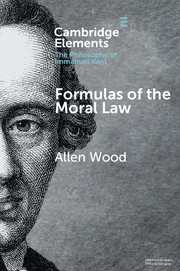Element contents
Formulas of the Moral Law
Published online by Cambridge University Press: 02 August 2017
Summary
Keywords
- Type
- Element
- Information
- Online ISBN: 9781108332736Publisher: Cambridge University PressPrint publication: 12 October 2017
References
Other sources
- 13
- Cited by



